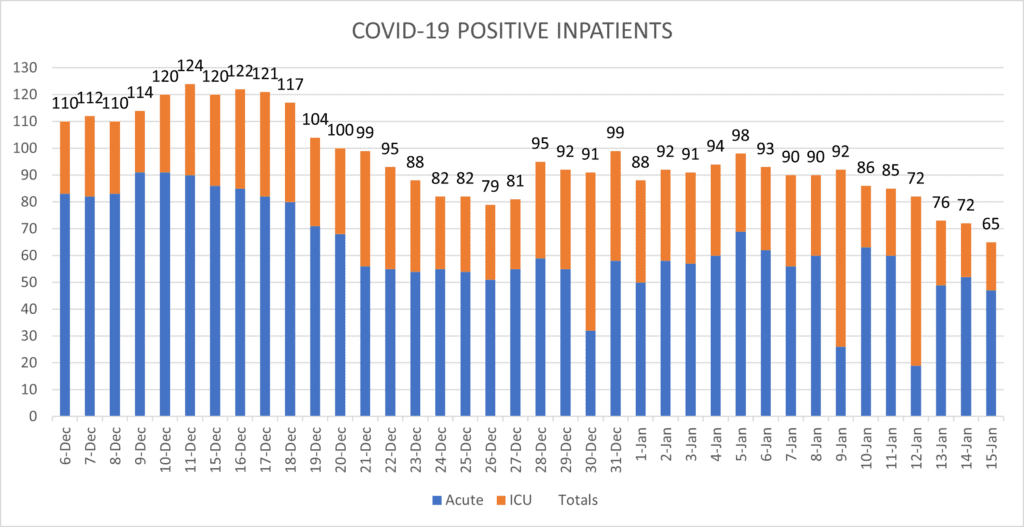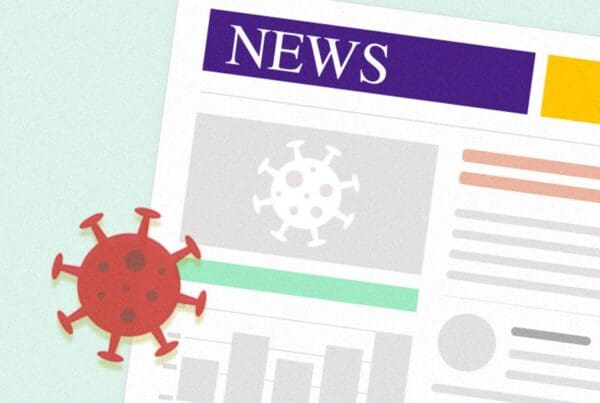As soon as the Washington State Department of Health (DOH) launches Phase 1B in the state’s COVID-19 vaccine rollout plan, UW Medicine will begin scheduling vaccinations for individuals who qualify for the first group prioritized in this new phase. This marks an exciting moment on our journey toward vaccinating our UW Medicine staff and community and to reducing the spread of COVID-19.
To provide further clarity on Phase 1B, the first eligible group within it will include individuals who are 70 years of age or older and individuals who are 50 years of age or older and living in a multigenerational household. UW Medicine employees who do not work in the hospital or clinical environment will fall under the timing and qualifications of the state’s vaccine availability phases. If you were not already vaccinated within Phase 1A, I encourage you to use the DOH online tool, Phase Finder, to get a sense of your assigned vaccine priority group.
UW Medicine is working as quickly as possible to ensure safe and equitable distribution of the COVID-19 vaccines. Your continued support and patience for the process has been critical in reaching this milestone of vaccination for our patients and community.
Today’s update includes:
• Local/National/Global Epidemiology and Vaccination Summary
• Healthy Washington – Roadmap to Recovery
• Tracking COVID-19 Variants at UW Medicine
UW Medicine COVID-19 Activity Summary

Local/National/Global Epidemiology
King County: Public Health – Seattle & King County is reporting 70,547 total cases and 1,165 deaths as of Thursday, Jan. 14. The number of new positive tests is currently at 353/14 days/100,000 people. The effective reproductive (Re) number was estimated to be 1.0 (estimate range: 0.8 – 1.2).
Washington: The Department of Health reports 271,643 cases and 3,876 deaths as of Wednesday, Jan. 13. Of the 4,153,214 people who have been tested, 6.5% have been positive.
United States: The Centers for Disease Control and Prevention reports 227,746 new cases on Friday, Jan. 15, 23,193,703 total COVID-19 cases and 387,255 deaths.
Global: The WHO COVID-19 Dashboard as of Friday, Jan. 15 reports 91,816,091 confirmed COVID-19 cases and 1,986,871 deaths.
UW Medicine Vaccination Summary as of Jan. 15
| Site* | Employees 1st Dose |
Employees 2nd Dose |
Community 1st Dose |
Community 2nd Dose |
Total 1st Dose |
Total 2nd Dose |
| UWMC ML | 5,269 | 1,389 | 1,447 | 207 | 6,716 | 1,596 |
| UWMC NW | 3,394 | 849 | 2,729 | 237 | 6,123 | 1,086 |
| HMC | 4,782 | 1,225 | 1,938 | 205 | 6,720 | 1,430 |
| Valley | 2,767 | 263 | 1,600 | 164 | 4,367 | 427 |
| Total | 16,212 | 3,726 | 7,714 | 813 | 23,926 | 4,539 |
*Site numbers represent doses administered, not the number of people who have been vaccinated and work at each site.
Healthy Washington – Roadmap to Recovery
Effective Jan. 11, Washington state has launched a new regional approach for the upcoming phased COVID-19 recovery plan. The Washington State Department of Health (DOH) has identified eight regions that fall along county lines and were determined according to the capacity of healthcare services available in each area. King, Pierce and Snohomish counties are combined as the Puget Sound region. The Healthy Washington Roadmap to Recovery plan will start with only two phases, while the state continues assessing the evolving pandemic. All eight regions in the state will begin in Phase 1. There are four metrics of state recovery, accounting for current COVID-19 trends and healthcare system readiness in each region:
- Decreasing trend in 14-day rate of new COVID-19 cases per 100,000 people
- Decreasing trend in 14-day rate of new COVID-19 hospital admissions per 100,000 people
- Average 7-day percent occupancy of ICU staffed beds is less than 90%
- 7-day percent positivity of COVID-19 tests is less than 10%
Once all of these metrics are achieved, a region moves into Phase 2. To remain in Phase 2, a region must continue to meet at least three of these four metrics with the first two decreasing or flat in trend. If these requirements are no longer met, the region – including all the counties within it – will move back to Phase 1.
Tracking COVID-19 Variants at UW Medicine
You are likely reading and hearing more and more about the variant strains of COVID-19 that were originally detected in the U.K. and South Africa and have since surfaced in the United States. The discussion around these strains is just getting started and researchers at the UW Medicine Virology Lab are working to stay ahead of the situation as it evolves. We have a team of scientists who are proactively collaborating with the Washington State Department of Health (DOH) and other external partners to identify and isolate potential cases of coronavirus with the new variants.
At this time, UW Medicine has not detected any variants of COVID-19 that have the potential to spread more rapidly than the form of coronavirus that first emerged in China. Out of 300 COVID-19 positive samples tested, none have shown the mutation that we know indicates presence of the variant strain. This is good news for our community and the state.
Our UW Medicine research teams will continue to track these developments in partnership with DOH so that we can address necessary precautions or treatment with our patients and community.
With this upcoming Monday commemorating the birthday and legacy of the Rev. Martin Luther King, Jr., Nobel Peace-prize winning civil rights leader and advocate for nonviolence, I am reminded of a famous quote from one of his speeches: “Life’s most persistent and urgent question is, ‘What are you doing for others?’” When I ask this question in reflecting on your courageous and tireless contributions through the duration of the COVID-19 pandemic, the answer is simple: Everything you are doing is for others, in service to the health and safety of our community in this challenging time. I hope, amidst the long days and uncertainty, you can take a pause to recognize the value of that commitment.
Thank you, as always, for all that you do for others.
Sincerely,
John Lynch, MD, MPH
Medical Director, Infection Prevention & Control
Associate Medical Director, Harborview Medical Center
Division of Allergy & Infectious Diseases, UW School of Medicine
